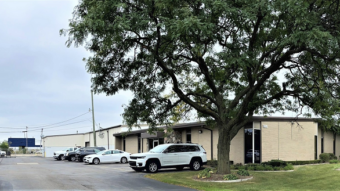It is estimated that by 2025, legal sales of marijuana in the United States will approach $40 billion. Clearly, the marijuana industry offers great opportunity for commercial real estate owners and developers in the warehouse, industrial and retail markets. However, these opportunities come with a host of legal risks that arise from a conflict between state and federal law that must be considered when leasing commercial space to a marijuana grower, distributor or retailer.
Specifically, while many states have legalized medicinal and recreational marijuana, it is still the case that under federal law, marijuana is a Schedule I controlled substance under the Controlled Substances Act. Under the federal “Crack House Statute,” it remains a felony to lease, rent or use real estate for the purpose of cultivating or distributing a controlled substance. Indeed, real estate that is used to facilitate such a federal crime is subject to asset forfeiture. Nevertheless, recognizing the opportunity created by a new market, commercial landlords are trying to navigate the conflict between federal and state law and lease to tenants in the marijuana industry.
Landlords with traditional mortgage financing must be careful. Most mortgages expressly require that the borrower and its tenants use the property in compliance with federal law. Thus, leasing to a tenant in the marijuana industry will typically constitute a default under a conventional mortgage. Even assuming the absence of conventional financing, it is nevertheless critical that willing landlords re-work their “boilerplate” leases to mitigate the risks presented by the conflict between state and federal law.
Compliance with law
Typically leases provide that tenants must comply with all federal, state and local laws regulating use of the property. A marijuana industry tenant’s use will not comply with federal law. Therefore, it is best to remove a requirement to comply with federal law and include a requirement that the tenant’s use comply with all state and local law and ordinances including those concerning the cultivation, distribution and sale of marijuana. Leases should expressly provide that landlords have the right to inspect the premises to ensure that tenants are complying with state and local law. However, those inspection rights must be drafted consistent with state law, which include restrictions on entry by anyone other than the party holding the license to operate the marijuana business.
License contingencies
In many jurisdictions, a marijuana business seeking a state license must secure a lease before it receives its state marijuana license. Therefore, the tenant will likely seek to negotiate a lease contingency based on obtaining its license and rent abatement prior to licensure. Landlords should be knowledgeable about state licensing to understand how long that contingency and abatement should reasonably last.
Legality
A fundamental rule of contract law is that illegal contracts are void and unenforceable. The parties should (a) stipulate that federal illegality is not a valid defense to claims arising under the lease and (b) waive the right to present evidence of illegality. The parties should also consider agreeing that all disputes under the lease must be brought in state court or arbitration, and not in federal court.
Operating expenses
Cultivation facilities require extraordinary amounts of water and utilities. They also will likely require extra janitorial and security services. The lease should clearly make the tenant responsible for these costs.
Percentage rent
Landlords must avoid charging rent based on a percentage of sales or profits. In the marijuana licensing process, state regulators closely scrutinize the ownership of marijuana businesses. Regulators view revenue sharing arrangements as creative ways to evade ownership disclosure requirements which ultimately may put the tenant’s marijuana license at risk.
Lease terms and termination rights
Landlords are committing to shorter lease terms with fewer renewal options given the uncertainty in state and local laws. Landlords should insist on termination rights in the event of any federal enforcement action against the tenant or the tenant fails to comply with state or local marijuana law or licensing requirements.
Banking and rent payment
Because marijuana is illegal under federal law, federally insured banks will not cash rent checks from marijuana-based tenants. Indeed, they are required under federal law to report suspicious payments over $10,000. Thus, landlords must decide whether they are willing to accept cash rent payments, which raise serious security risks and costs, or find alternative banking arrangements such as local banks, credit unions and specialized third party banking companies that service the marijuana industry. Landlords should specify how rent must be paid in their leases.
Insurance
Boilerplate leases require that tenants purchase property insurance for their personal property and inventory. Traditional insurers may deny coverage for marijuana-related losses on the grounds that the loss arises from illegal uses. However, new specialized insurance policies expressly written for the marijuana industry are becoming more widely available. Landlords should modify their lease forms to require that the tenant self-insure or purchase supplemental marijuana industry specific coverage.
Indemnification
Leasing to a tenant in the marijuana industry presents unique risks that require broader indemnification than the typical lease. For example, the landlord may be named in a suit arising from (a) a personal injury or accident that occurred when someone was under the influence of a tenant’s product or (b) an enforcement action brought under federal law criminalizing the distribution or sale of marijuana.
The above examples are not exhaustive. Landlords seeking to participate in this new market must be mindful that state and federal law conflict, the law is changing, and standard lease terms and concepts must be revisited and reconsidered as the legal landscape matures.
About the author
Monte L. Mann, a Partner with Novack and Macey represents clients in high-stakes litigation concerning a wide variety of subject matters, with a particular emphasis on the financial services, commercial real estate, insurance and manufacturing industries, as well as in defending legal malpractice lawsuits. He is co-chair of the firm’s Real Estate Litigation Practice Group.




